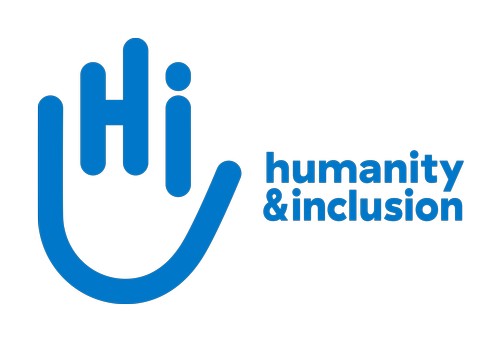Gender and Disability Project
June 2025 MIW Project Brief
Do you want to know what MIW is, and why we claim to be a feminist anti-ableist decolonial intersectional project within Humanity & Inclusion?
How we do practice intersectional partnerships with 20+ women-led Organisations of Persons with Disabilities and inclusive Feminist organisations?
What are our latest success? Discover our latest Project Brief.
‘Forgotten women, silenced violence’: Report by PFPC and MIW - 14 August 2025
‘Forgotten women, silenced violence’: A new report by PFPC (Plateforme des FEmmes pour la Paix en Casamance) and MIW - 14 August 2025
French only
VOICES OF... Third number of the collection, published by MUDIWA Uganda
In English and soon in French: Open the MUDIWA report titled "Echoes of hope for women with psychosocial disabilities in Kassanda, Uganda"
Mubende Women with Disabilities Association (MUDIWA) is an organisation of women and girls with disabilities in Uganda, committed to promoting the rights of women and girls with disabilities in all aspects of life. Driven by a strong commitment to gender and disability inclusion, MUDIWA set out to uncover the realities faced by women with psychosocial disabilities in the district.
In March 2024, MUDIWA met with 60 women with psychosocial disabilities, 4 of whom had speech and cognitive challenges that required support from their caregivers. The women shared their experiences of living with psychosocial disabilities within their communities, their challenges, and their needs for inclusion in society.
See all reports within the Voices Of collection.
VOICES OF... Second report of the collection, published by ABPDFH Burundi
In French and now in English.. Discover the new report from ABPDFH titled "Voices of women with disabilities in Burundi: Shared realities" / "Au coeur des femmes : réalités partagées - Paroles de femmes handicapées du Burundi".
The Association pour la Promotion des Droits des Femmes Handicapées du Burundi - Urumuri (ABPDFH) is an organisation of women and girls with disabilities in Burundi, committed to promoting the rights of women and girls with disabilities in all aspects of life.
In March 2024, ABPDFH - Urumuri met with 86 women with disabilities. Women of all ages and all disabilities, some of them involved in associations and self-help groups, talked about their lives, their difficulties, their pride and their dreams. They shared their realities, to give us a glimpse of what a more inclusive society might look like, in which they would have their rightful place.
VOICES OF... MIW and partners launch their new collection to hear the voices of women with disabilities
From Lira, Uganda: Women with psychosocial disabilities are sharing their views.
LIDDWA publishes this report titled 'Voices of Women with Psychosocial Disabilities in Lira, Uganda' with the aim of making their voices heard, their experiences shared and ultimately inform further engagement by all stakeholders for a more dignified, autonomous and healthy life for women and girls with disabilities.
This is the first of MIW collection "Voices of...". Stay tuned for more in the coming weeks.
Leave No Woman Behind ! - Ne laissons aucune femme de coté
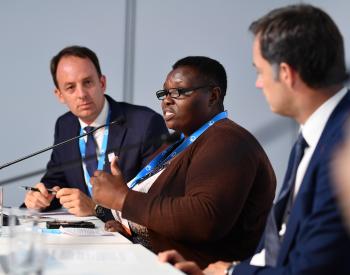
#DisabledWomenEngage: Click here to jump on the page dedicated to advocacy by and for women with disabilities!
Do you want to read what DIWA Disabled Women in Africa and MIW are doing together in 2024 for an Inclusive Beijing+30 Review process? Follow the link to Beijing+30 dedicated news page.
And to discover our last International events where women leaders with disabilities share their views: Reach our Youtube Channel!
New MIW Report 2023
"Leadership of women with disabilities: strategies to combat violence in West Africa" - updated version 2023 with Togo!
2023 augmented edition of our MIW 2022 report highlights 6 new good practices implemented by women and girls with disabilities in Senegal, 3 new good practices and an emerging practice in Benin, and 2 good practices in Togo.
It is available in English and French.
Latest actions: read our July 2023 and July 2022 Project Briefs!
Get through our July 2023 Project Brief to learn more on our latest developments. July 2022 Brief is also available if you want to know more of previous actions.
The MIW network is strongest of 17 partner organisations in 10 countries, including Togo, Benin and Senegal!
Read how we have been promoting the leadership and rights of women with disabilities in various spaces!
Learn more on our anti-ableist, decolonial, anti-racist intersectional feminism.
2020 MIW Report and 2021 summary leaflets in English and French are gathered here!
Our Report titled " Gender and disability: Inspiring practices from women and girls with disabilities addressing discrimination and violence in Africa" published in October 2020 is available below, in English and French, in PDF and accessible Word versions.
A summary of the good practices from Burundi, Kenya, Mali, Uganda and Rwanda can be found in our leaflet, published March 2021, also available in English, French, in PDF avec accessible versions.
The 17 Making It Work Country Partners
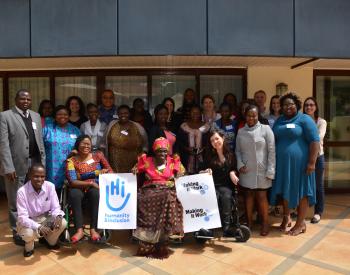
Making It Work is proud to be working with 17 grassroots organizations in Africa! Our country partners are either women with disabilities organizations or feminist organizations working with women with disabilities to fight gender-based violence.
The country partners selected in 2017:
Visual Hearing Impairment Membership Association (VIHEMA) - Malawi
Cameroon Baptist Convention Health Services (CBCHS) - Cameroon
Rural Women Peace Link (RWPL) - Kenya
Coalition on Violence Against Women (COVAW) - Kenya
Lira District Disabled Women Association (LIDDWA) - Uganda
Rwanda Organization of Women with Disabilities (UNABU) - Rwanda
Women Challenged to Challenge (WCC) - Kenya
Disabled Women in Africa (DIWA) - Malawi
Inclusive Friends Association (IFA) - Nigeria
The country partners selected in 2018:
Union des Personnes Handicapées (UPHB) - Burundi
United Disabled Persons of Kenya (UDPK) with FIDA Kenya (Federation of Women Lawyers) - Kenya
KEnya FEmale ADvisory Organization (KEFEADO) with KADDNET - Kenya
Women and Realities of Disability Society (WARD) - Kenya
Organisation pour un développement intégré au Sahel (ODI Sahel) - Mali
Rwanda National Association of Deaf Women (RNADW) - Rwanda
Mubende Women With Disabilities Association (MUDIWA) - Uganda
National Union of Women with Disabilities of Uganda (NUWODU) - Uganda
A long way to go! Are women with disabilities included in African GBV policies? A policy review by MIW
One in five women is a woman living with a disability, yet very few policies are built to ensure and protect the rights of women with disabilities specifically. Although some policies entail inclusive measures, which deserve to be highlighted, this study sheds light on the huge lack of inclusion and equality of GBV policies.
Inclusion, intersectionality and diversity are at the centre of the conversation; policies should be inclusive, protecting those facing intersecting forms of discrimination. Women with disabilities are invisible in two-thirds of GBV policies: this review of 27 GBV policies across the African continent demonstrates that there is still a long way to go.
Want to analyse your own GBV policy?
Please find hereafter our Scoring Tool, that can be used to analyse the level of inclusion of each GBV policy or plan. Please reach out or read the Policy Review to get the full methodology.
About the project
The Gender and Disability project specifically acknowledges the vulnerability of women and girls with disabilities to gender and disability-based violence and the lack of documented good practices on inclusive responses to address it. On this ground, the MIW Gender and Disability project seeks to increase the visibility of women and girls with disabilities within international development, human rights, gender and humanitarian action to ensure that their voices and concerns are heard on how to respond to violence, abuse and exploitation throughout the world.
Since 2017, we have been working with 17 organizations across Africa in Burundi, Cameroon, Kenya, Malawi, Mali, Nigeria, Uganda, and Rwanda. These country partners were selected by our Technical Advisory Committee (TAC), following a call for good practices. The TAC is made up of individual members and representatives from key organizations working on the rights of persons with disabilities, women's rights and human rights.
The Making It Work Gender and Disability project supports country partners to do evidence-based advocacy at all levels. They also receive technical and ad hoc financial support from the MIW team. Once a year, newly selected partners are gathered in Nairobi to analyze their good practices and design a scaling action plan.
Making It Work strenghtens the global advocacy effort in favour of women and girls with disabilities and reaffirms that their leadership is crucial to implement sustainable practices to fight gender-based violence.
Please refer to our News section to read the latest developments of the Making It Work Gender and Disability project.
Make sure to never miss an update by following us on Twitter, Facebook and LinkedIn!
2018: Gender and Disability Intersectionality in Practice!
Our 2018 report "Gender and disability intersectionality in practice: Women and girls with disabilities addressing discrimination and violence in Africa" presents the 9 African good practices selected in 2017 (see the list below). It also contains key advocacy recommendations that can be used by disability and/or gender advocates in order to further promote the rights of women and girls with disabilities.
The leaflet giving an overview of the report is also available in English (see below) and French
We hope readers will be inspired by the outstanding practices showcased in the report - let us know what you think about it!
You will find below documents developped by the MIW team over the past few years, including a 2019 update.
List of the good practices selected in 2017
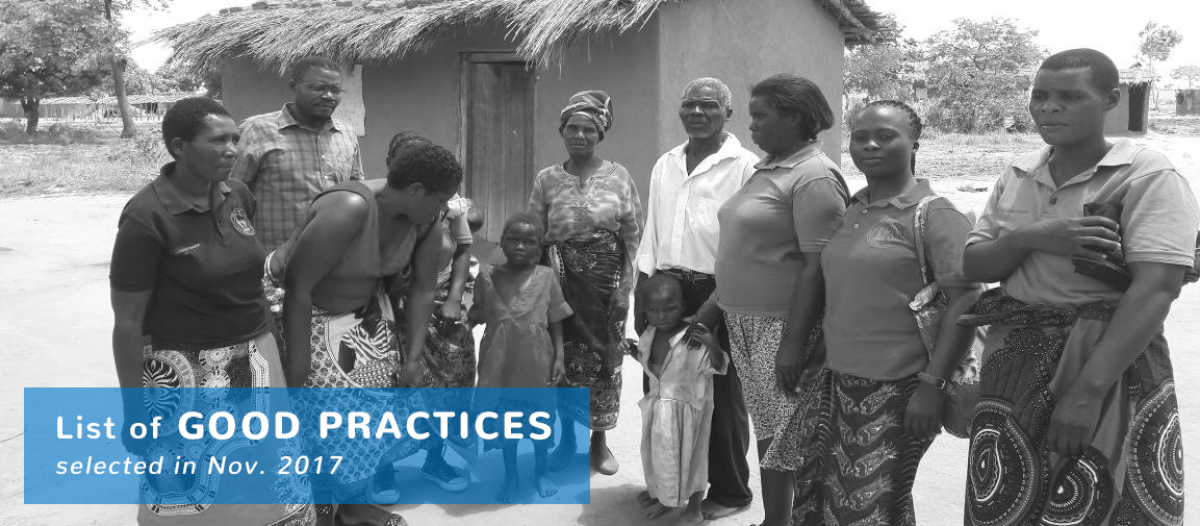
List of the good practices selected in 2019
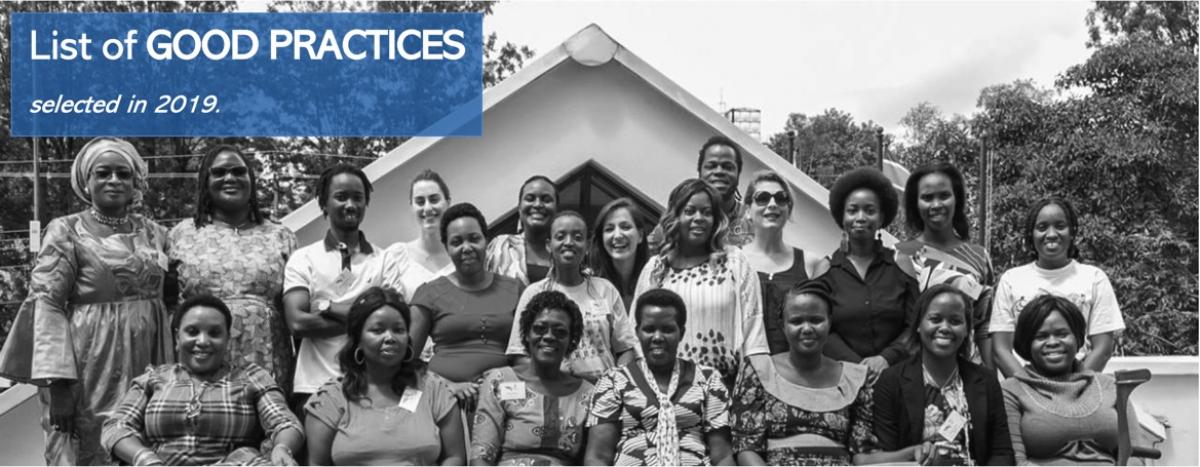
Copyright © 2026. All rights reserved.
